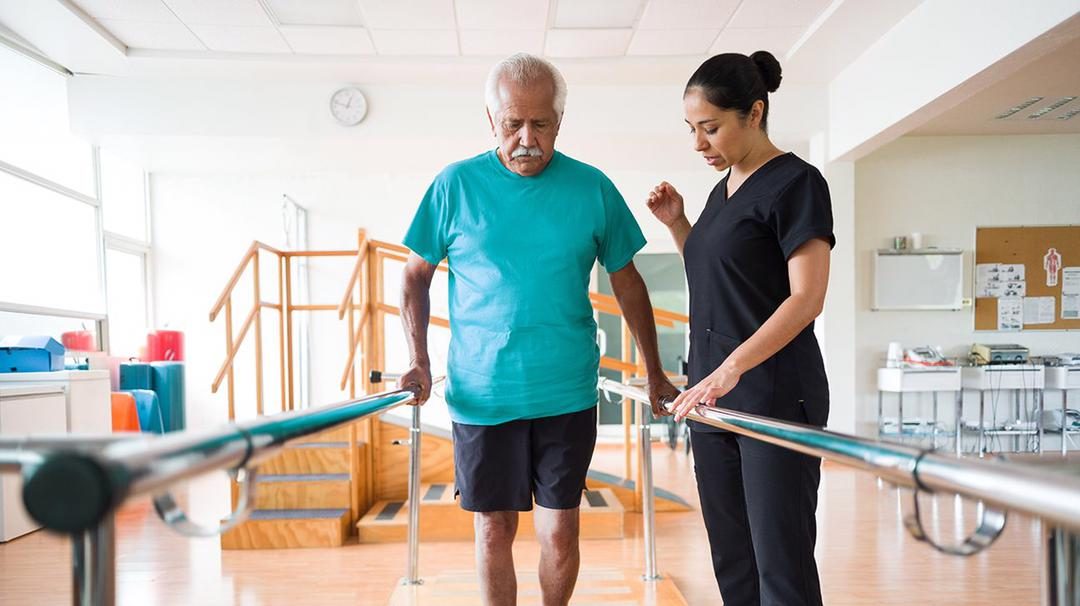Address
304 North Cardinal St.
Dorchester Center, MA 02124
Work Hours
Monday to Friday: 7AM - 7PM
Weekend: 10AM - 5PM
Address
304 North Cardinal St.
Dorchester Center, MA 02124
Work Hours
Monday to Friday: 7AM - 7PM
Weekend: 10AM - 5PM

Neurology within the realm of physiotherapy represents a dynamic and evolving field that plays a crucial role in rehabilitating patients with neurological conditions. It’s a discipline that blends intricate scientific knowledge with hands-on therapeutic techniques to restore function, enhance mobility, and improve quality of life for individuals affected by neurological disorders.
Understanding Neurology in Context
Neurology, in its essence, deals with the study of the nervous system and its disorders. Within physiotherapy, this translates into focusing on how neurological conditions impact movement, balance, coordination, and overall physical function. Whether it’s stroke, traumatic brain injury, multiple sclerosis, Parkinson’s disease, or spinal cord injury, each condition presents unique challenges that require specialized rehabilitation strategies.
The Role of the Physiotherapist
Physiotherapists specializing in neurology are highly trained professionals who assess, diagnose, and treat individuals with neurological impairments. Their expertise lies in understanding the complex interplay between the nervous system and musculoskeletal system, devising personalized treatment plans that address both the physical and functional limitations of their patients.
Treatment Approaches and Techniques
Treatment in neurology-focused physiotherapy is multifaceted, incorporating evidence-based practices and innovative techniques aimed at promoting neuroplasticity—the brain’s ability to reorganize and form new neural connections. These approaches may include:
Each of these techniques is tailored to the specific needs and abilities of the patient, with the goal of maximizing functional independence and promoting recovery.
The Science Behind Neurological Rehabilitation
Recent advancements in neuroscience have greatly influenced physiotherapy practices. Techniques such as mirror therapy, virtual reality rehabilitation, and motor imagery are now integrated into treatment plans, harnessing the brain’s ability to adapt and relearn movement patterns. Moreover, neuroimaging technologies provide insights into brain activity changes during rehabilitation, guiding therapists in optimizing treatment strategies.
Challenges and Opportunities
While neurology in physiotherapy has made significant strides, challenges persist. Patients with neurological conditions often face long-term rehabilitation journeys requiring ongoing support and adjustment of treatment plans. Moreover, access to specialized care and resources can vary, impacting treatment outcomes.
However, these challenges are met with ongoing research and innovation. Collaborations between physiotherapists, neurologists, and researchers drive the development of new interventions and technologies, promising improved outcomes and quality of life for patients.
Looking Ahead
As our understanding of neurology continues to evolve, so too will the practice of neurology in physiotherapy. The future holds promise for more personalized treatment approaches, leveraging technologies like artificial intelligence and wearable devices to monitor progress and deliver targeted interventions.
Ultimately, neurology in physiotherapy represents a beacon of hope for patients with neurological disorders, offering not just rehabilitation, but empowerment through regained function and independence. It is a field where scientific inquiry meets compassionate care, driving advancements that transform lives.
In conclusion, the intersection of neurology and physiotherapy underscores the power of interdisciplinary collaboration and the profound impact of rehabilitative care on neurological health. As we navigate the complexities of neurological disorders, physiotherapists stand as integral partners in the journey toward recovery, resilience, and renewed possibilities.